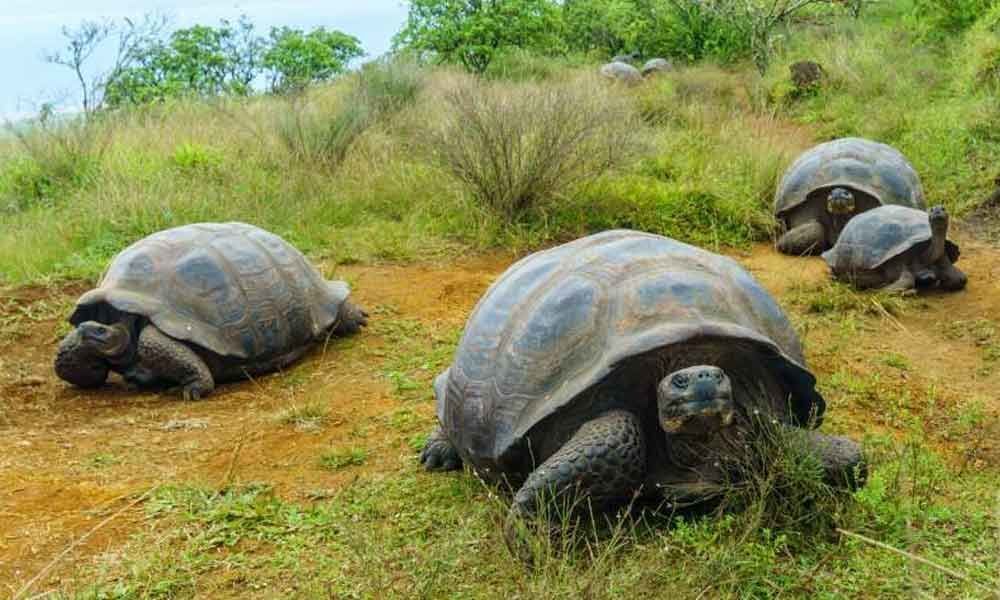Environmental conditions affecting tortoise's ability to migrate

Climate change may affect giant tortoise's ability to migrate.
Washington: Climate change is a factor that might affect the Galapagos or giant tortoise's ability to migrate at the right time, reveals a study. The creatures are known to take the migration routes to look for the right temperature and the right food quality, the study added.
The study was published in the Journal 'Ecology'. The researchers kept a track of the timings and patterns the tortoise followed over years, using GPS technology.
"We had three main goals in the study. One was determining if tortoises adjust their timing of migration to current environmental conditions. Two, if so, what clues do they use to adjust the timing, and three, what are the energetic consequences of migration mis-timing for tortoises?" said Guillaume Bastille-Rousseau, lead author of the study.
He added, "Many animals, such as ungulates, can track current environmental conditions and migrate accordingly - what researchers sometimes refer to as surfing the green-wave."
And so, the researchers had expected that the way tortoises migrated was timed with the food and temperature conditions.
The study, to the contrary, presented a revelation that current conditions like fog, rain, the temperature had a very less association with their migration. For example, if it gets arid, tortoises migrate to that area without considering the weather.
"Tortoise timing of migration fluctuated a lot among years, often by over two months. This indicates that migration for tortoises may not just be about foraging opportunities. For example, female tortoises have to make decisions related to nesting, and we still have a lot to learn about migration in giant tortoises," Bastille clarified.
Tortoise's long lives and a huge body size prevent them from suffering any effects from bad migration timings for they can survive without eating for up to a year.
Giant tortoises are important ecosystem engineers in the Galapagos responsible for long-distance seed dispersal, and their migration is essential for many tree and plant species' survival. However, if the migration timing of a tortoise, will affect the ecosystem, is still not clear.
"One concern is that at some point in the future. Migration may not be an optimal strategy for tortoises. There may be a reduction in the number of individuals doing these long-distance movements. This would likely have cascading consequences for the whole ecosystem," Bastille concluded.
















